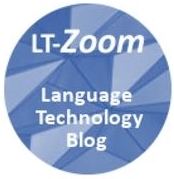
Language Intelligence (LI) is Artificial Intelligence (AI) for Human Language. LI applications make it possible to produce, communicate and understand any digital speech and text content on any media for everyone. This machine capability can therefore encode and radically expand the power of natural spoken and written language in every area of life. LI operates at the intersection of three key concepts: conversation, language-neutrality, and multimodality. This means that it supports and enhances talking and listening to and with both people and machines, as well as searching for, producing, and understanding information of any kind in different media. Between all human languages, using machine translation.
LI has the power to deliver automated solutions that make repetitive or very large-scale content processes more or less invisible. As a result, busy people can focus more energy on strategy, decision-making and negotiations, and allow LI to take over much of the time-consuming work of writing, discovering, summarizing, scan-reading, editing, transcribing, and translating linguistic content. This represents a tremendous leap forward because we can now outsource knowledge-based tasks to our machines. At the same time, our digital systems can learn better how we think, reason and express ourselves, and invest such knowledge in improved human-machine interface design. Rather than dehumanizing our intellectual and psychological capabilities, LI on the contrary lets us humans use digital power to expand the scale and depth of our insight into available knowledge, argument, sentiment and intent.
Why is LI important to you?
Language is not just your most familiar communicative medium. It is also your most intimate and nuanced indicator of personal identity, mood and intent. By using LI to model these linguistic powers for your digital interfaces with machines, as well as your communication and production pipelines, you can engage in a deeper, broader understanding of people, knowledge and ideas. This is why it is vital to ensure that all languages are “transformed” into digital resources for all communities - especially in Europe, which is founded on the vibrant interplay of national and local languages.
LI provides the tools to find new value in spoken and written content in other tongues, and forge closer personal ties to all our contacts because we can interpret their profiles better through their language, and learn better how to meet their needs. This makes LI key to delivering vital content-based services via rich speech and text interfaces for people and machines right across the board in government administrations and businesses, networks and homes.
How LI Can Help: Specific Use Cases
Here are four examples of LI at work in industries that will be centre stage at the LTI2019 Conference.
Vehicle Interactions
Human communication in the world of mobility is undergoing a revolution: by speaking naturally to our vehicles we can control their operations, expand their utility to us as ambient information sources, and simultaneously boost safety across the board by automatically sharing vehicle information with others on the road. This means vehicles need to recognize us, understand what we say, answer certain questions we may pose, and respond to our instructions. The same functionality will be needed for hire vehicles which have no previous experience of you or your voice. Among other functions, vehicle windscreens will almost certainly be used to provide a “media” for the improved exchange of visual information about the roads, traffic, objects of interest, etc. during the journey.
Financial Services
There are at least three major contexts in which LI can enhance the trustworthiness and value of financial technology services for banks and insurances. One is in helping verify statements about financial operations on markets made over telephones in trading rooms by analysing speech records. A second is in automatically handing the communication interface between increasingly demanding and reactive clients needing more complex information about their accounts. And third, by providing a semantically rich search and production service that can automatically output reports from content found in data repositories without costly human assistance.
News Media & Monitoring
Now that news media have become largely digitized, LI can play a high productive role in automating aspects of the creation, management, delivery and monitoring of news content across all channels. In particular, it can help attack (if not solve) the constant issue of fake news by automatically checking the veracity of online content in any language on a vast scale in near real time. LI is already playing a vital role in speeding up content searching, story tracking and automated production for many news organisations. It will continue to harness LI to build the resources needed by journalism worldwide to deal more effectively with information fall-out in an age of massive multilingual social media.
AR/VR Can Talk Volumes
Due to the nature of Machine Learning algorithms, it is now possible to create new opportunities for content that seamlessly transform language into image, video into storylines, and speech into text (and vice versa). This capability can be applied in education and training, engineering design, knowledge-sharing, film-making, and virtual reality experiences of all kinds. Cross-media “translations” between these content types are opening up new types of jobs and services. A broad range of healthcare insights can be elicited from spoken voices analysed in correlation with large medical datasets. Maintenance & repair tasks, as well as battlefield operations for military personnel, can be enhanced using visual and linguistic information beamed onto augmented-reality screens or smart-glasses. And the capacity to record multiparty meetings, automatically summarise the contents and highlight key topic threads will further streamline knowledge access and sharing on a global scale within a minimum time frame.
 |
Andrew Joscelyne is Senior Advisor of LT-Innovate |  |
Philippe Wacker is Executive Director of LT-Innovate |


